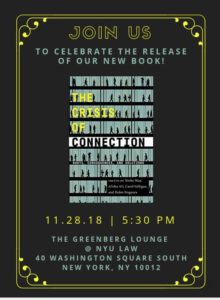Meet Our Newest Change Maker: Upper School Head Lisa Arrastia

Lisa Arrastia
Lisa Arrastia, the new Head of Upper School, comes to BFS with a stunning, well-earned 11-page resume. Here are just a few of the highlights. Before joining BFS this year, the New York City native was the Middle School Principal at United Nations International School (UNIS) in Manhattan. She was also a lecturer in SUNY Albany’s Program in Writing and Critical Inquiry, and she was the founder and former director of a high school in Chicago.
She is President of the Board of Kite’s Nest, an educational social change organization for youth in Hudson, New York, and she continues to work with the Ed Factory, a consultancy she founded whose mission it is to use “the art of social engagement to transform the educational process and challenge notions of difference.”
The Ed Factory’s work proves “the problems that young people experience in their day-to-day lives are the consequence of profound social disconnection from self and others.” The educational “projects that emerge from Ed Factory programs demonstrate that when people learn to understand race, social class, gender, religion, and sexuality stereotypes as symptoms of disconnection, they’re better equipped to design equitable learning spaces that promote engagement and understanding.”
One such project created by Lisa at the Ed Factory is the Young People’s Archive, which began in 2009 at University of Minnesota. The growing archive contains over 600 audio essays and what YPA calls 1-Minute Audio Diaries, all of which are created by youth.
“While working with teachers and young people across the country,” Lisa explains, “I’ve developed a qualitative research methodology: audioethnography. This approach allows young people and teachers to use what I call engaged interviewing, radical listening, writing to inquire, and audio production and editing to help understand how people experience the world and notions of difference.”
If the concept of radical listening sounds, well, radical, that might be because, as Lisa shares, “Often, real listening is radical because like the words etymology suggests, when we listen we get underneath, to the bottom, we get at the root of what someone thinks, believes, and feels. To listen with radical intent is to slow down and to listen beneath the words others say. When we listen with this kind of purposefulness, we give a gift to our narrators because their experience is allowed to be heard. The difficult part is to maintain present with the narrator and accept, in the moment, that what you are hearing is a sort of truth.”
This process is also something Lisa defines as listening to understand. “It’s about exploring silence, exploring pauses, trying to listen and put into your back pocket your own biases as they emerge while listening.”
Her numerous accolades speak for themselves. She has been awarded fellowships from the Coordinating Council for Women in History, the American Association of University Women, Big Picture Learning, and New Leaders. She co-edited the book Starting Up: Critical Lessons from 10 New Schools, and she has contributed articles to the Journal for Critical Education Policy Studies, Antipode, Exposure, and the Huffington Post. She is also a consulting editor for the journal Schools.
Outside of BFS, Lisa spends time with daughter Betye and her husband Mark Nowak, an English professor and winner of the Guggenheim for poetry. Mark is also the founder and director of the Worker Writers School, an organization which facilitates poetry workshops for global worker centers. Worker Writers is in its eighth year of collaboration with PEN America, Domestic Workers Alliance, and the New York Taxi Alliance.
Betye, who graduated high school at age 16, studies Mandarin and Spanish at the New School; like our own seniors, Betye is in the process of applying to college. She volunteers at the Audre Lorde Project, serves as the Managing Archivist for the Young People’s Archive, and is a member of the Public Theater’s Radical Hospitality Committee, which is a part of its Public Works initiative.
 Just last month, Lisa’s “Love Pedagogy: On Disrupting the Education Economy” was published in Australia’s longtime progressive literary journal Overland. On Nov. 28, 2018, at NYU, Lisa will join activists, artists, neuroscientists, and education scholars from across the nation and the globe for an event launching a book in which Lisa has a chapter titled “Love Pedagogy: Teaching to Disrupt.” The book, The Crisis of Connection: Roots, Consequences, and Solutions, edited by Niobe Way, Carol Gilligan, Pedro Noguera, and Alisha Ali, is now available on NYU Press.
Just last month, Lisa’s “Love Pedagogy: On Disrupting the Education Economy” was published in Australia’s longtime progressive literary journal Overland. On Nov. 28, 2018, at NYU, Lisa will join activists, artists, neuroscientists, and education scholars from across the nation and the globe for an event launching a book in which Lisa has a chapter titled “Love Pedagogy: Teaching to Disrupt.” The book, The Crisis of Connection: Roots, Consequences, and Solutions, edited by Niobe Way, Carol Gilligan, Pedro Noguera, and Alisha Ali, is now available on NYU Press.
Her next book is about race and the effects of the contemporary education economy on young people and their teachers. The book will have photographs by her former student, Alberto Marriaga, and it is tentatively titled The NCLB Generation: An Oral History Remix.
Lisa says she’ll never give up working in schools or writing about them. “Writing and the school are sites through which I have the power to provide a voice for young people and their families, myself, and those I call courageous intellectual workers: teachers.”
